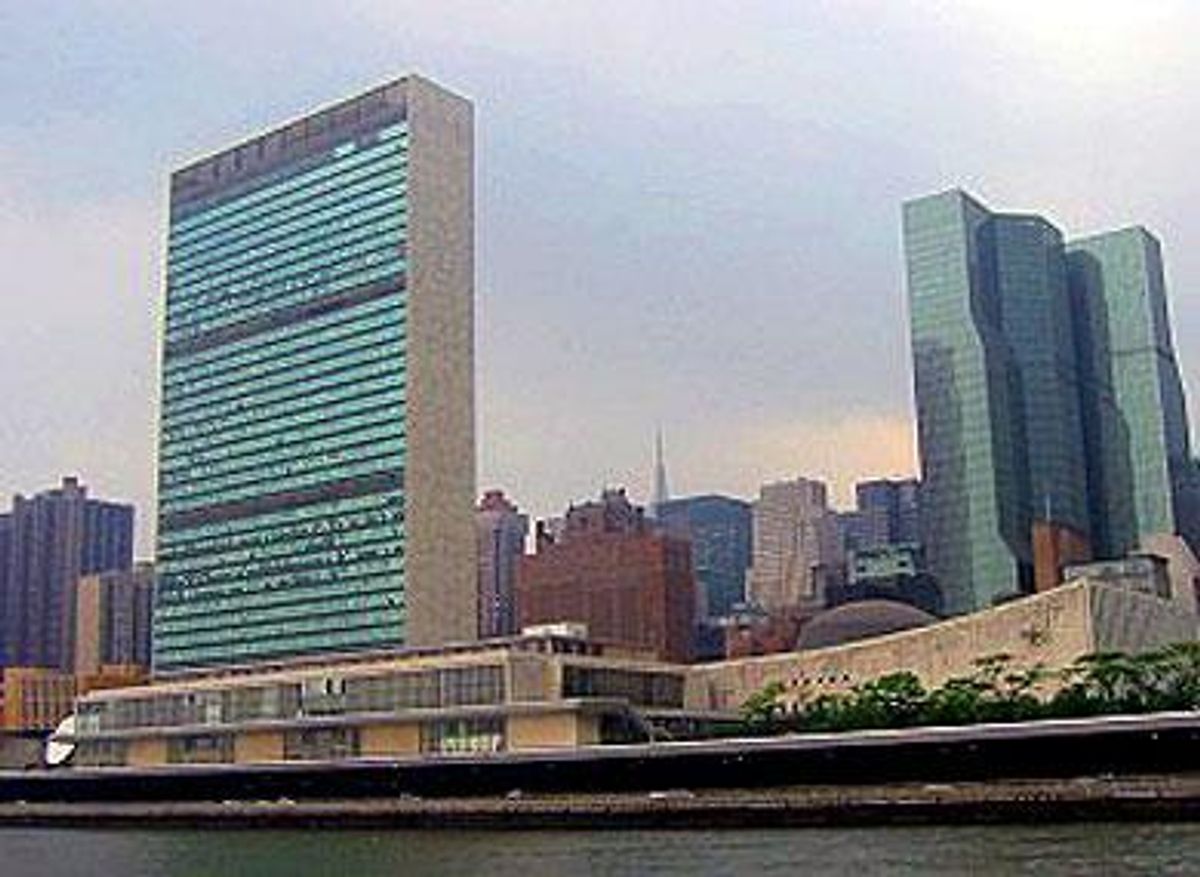A joint statement
addressing homophobia and LGBT rights for the first
time at the United Nations was tabled Thursday, without the
backing of the United States.
"We urge states
to take all the necessary measures, in particular
legislative or administrative, to ensure that sexual
orientation or gender identity may under no
circumstances be the basis for criminal penalties, in
particular executions, arrests or detention," the draft
document read.
The unprecedented
gay rights declaration was proposed by the French and
read by Argentinean ambassador Jorge Arguello. The
nonbinding statement is based on the Universal
Declaration of Human Rights, stating that "all human
beings are born free and equal in dignity and rights."
The United States
did not sign the statement, but former U.N. spokesman
Richard Grenell said the U.S. was hung up on its "don't ask,
don't tell" policy, which bars out gays and lesbians
from serving in the military.
"The fact that
the Bush administration hired as many gays and
lesbians with top secret security clearances in and of
itself means that we are not criminals," Grenell said.
"To later suggest that because of 'don't ask, don't
tell' we can't support this resolution flies in the
face of real compassion."
Grenell added
that before he left his post in October as the
longest-running American spokesman for the United Nations,
he explained to State Department officials that the
United States should sign the statement immediately,
as a means to show the Bush administration is
compassionate and accepting. "Yet, they came up with this
phony argument that legally they had a problem with
'don't ask, don't tell.'"
Sixty-six of the
192 member countries, including the full European Union,
Central African Republic, Brazil, Cuba, Israel, and Japan
urged the decriminalization of homosexuality on
Thursday to fellow member countries. In addition to
the United States, China, Russia, and all of the Arab
nations refused to back the statement.
A rival
statement, read by Syria, garnered 58 signatures, according
to Bloomberg News. Syrian envoy Abdullah al-Hallaq,
reading the statement, said homosexuality could "usher
into social normalization and possibly the
legitimization of many deplorable acts, including
pedophilia."
More than 77
countries find consensual same-sex relations to be
a punishable offense, according to the International
Lesbian, Gay, Bisexual, Transgender, and Intersex
Association. Seven countries -- Iran, Mauritania,
Nigeria, Saudi Arabia, Sudan, the United Arab Emirates, and
Yemen -- punish homosexuality by death. (Michelle Garcia,
Advocate.com)



















































































